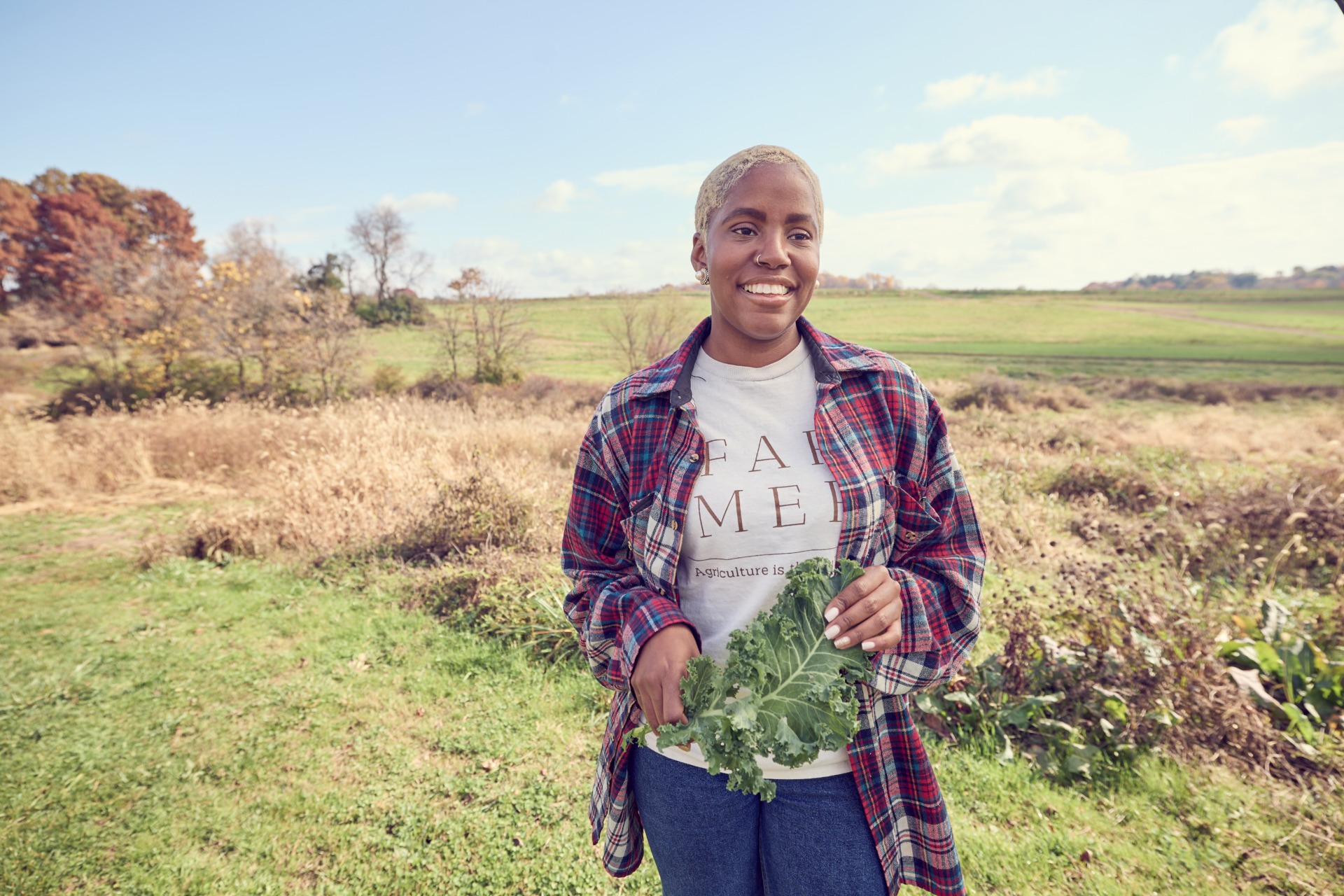- About
- Why ‘Town
- Admission
- Lower School
- Middle School
- Upper School
- Summer Programs
- Lighting The Way
- Academic Calendar
- Athletics
- Arts
- MyWesttown
- Photos
- Support Westtown
- Alums
Westtown School and Christa Barfield, owner and operator of FarmerJawn Agriculture, are proud to announce a new partnership. Effective January 1, 2023, Barfield will lease 123 acres of the school’s campus to create an organic farm with an unconventional model.
Both stewardship of the land and the educational potential of Westtown’s 600 acres has long been a focus of the school. This intentional work is prioritized in the school’s Strategic Vision alongside a commitment to fostering equity, access, inclusion, and belonging.
A portion of the school’s land has been leased for farming use since 1996. Upon the announcement of current farmer Pete Flynn’s retirement, the school began a search for a partner with a commitment to a reciprocal, regenerative, and restorative relationship with the land. The school created a Farmland Task Force and commenced a months-long search for a mission-aligned partner. Head of School Chris Benbow shares, “The task force was impressed by Barfield’s experience, approach, and strong alignment with the school’s mission and Strategic Vision and is pleased to invite her to campus as our new partner.”
Barfield is a dynamic entrepreneur and a passionate advocate for healthy, organic food and for regenerative farming practices, with a vision to restore access to farmland and farming for Black farmers. She currently operates two Philadelphia-area businesses—FarmerJawn Agriculture and Viva Tea Leaf. Her organization includes a retail and garden learning center in Germantown, a community-supported agriculture (CSA) business, and five acres of farmland in Elkins Park. Barfield shares, “FarmerJawn is excited to expand our regional network to Westtown School to create a just food system that perpetuates regenerative and organic health for people and the planet.”
Barfield will farm half the land and use it to stock the farm market already located on the premises. The farm market will operate under a new name and will eventually include a CSA, prepared foods, and other locally grown and sourced products. The remaining acreage will become a “farming incubator,” comprising five ten-acre cooperative farms operated by a cohort of Black farmers. This incubator model will offer educational development opportunities and a “pathway to entrepreneurship” via sales at the farm market.
